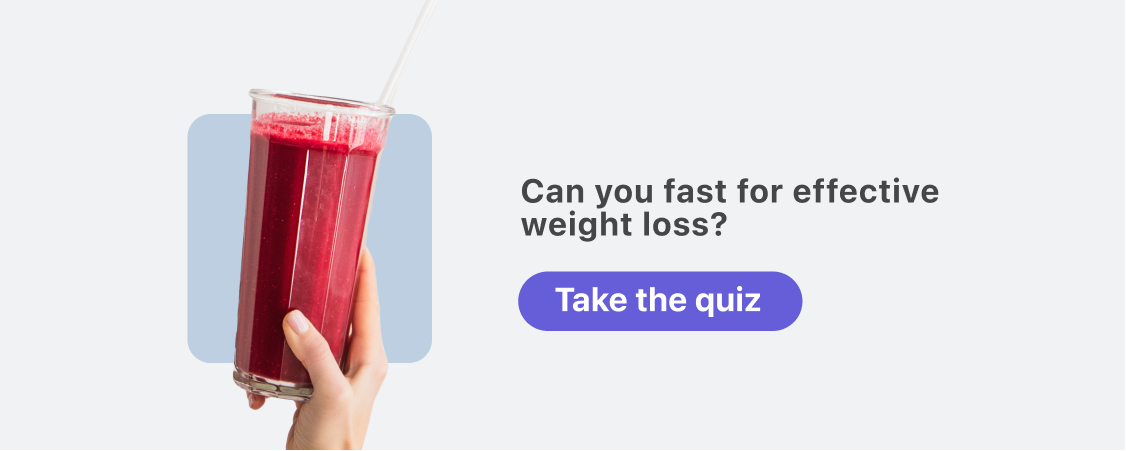11 intermittent fasting benefits – explained by Simple

You’re tired of diets. You’re done with calorie trackers ruling your life.
But you still want to do something to lose weight and/or make your body feel and function better.
Intermittent fasting has some attractive benefits in just those areas.

Maybe what you’ve heard has you intrigued to see whether this much-talked-about approach to eating has anything to offer you. Is it worth your time and effort?
There are certainly plenty of good things about intermittent fasting. Of course, there are some less-than-stellar things, too.
So, the question is,
Can intermittent fasting put its money where its mouth is when it comes to helping you reach your goals?
Let’s take a look at the evidence and see.

From head to toe (literally!) intermittent fasting has a lot of potential benefits.
So, what do you have to gain?
Here are 11 possible benefits of intermittent fasting.
1. Weight loss
The evidence seems to stack up: intermittent fasting reliably comes up with the goods when it comes to hitting a lower scale weight.[1,2] Some research shows you can lose 7–11 pounds in 10 weeks.[3]
Other studies found that average intermittent fasting weight loss ranged from 3% to 8% of body weight in 3–24 weeks, with participants in one study losing up to 13% of their weight in 12 weeks.[4]
Now, there are a couple of things to be aware of here.
One, intermittent fasting tends to have similar effects on weight loss as regular calorie-controlled diets.[5] And two, some studies show that intermittent fasting is not effective for weight loss.[6]
What can we deduce from this? Two things:
- If you find intermittent fasting an easier way to manage your food intake, then intermittent fasting will probably generate results for you.
- But it’s unlikely to make a difference unless you team it up with high-quality eating habits.
2. Reduced belly fat
Sometimes, when we chase weight loss, what we actually want is fat loss.
When we lose weight, that weight can be lots of things: muscle, bone, water, glycogen, or fat. Of these, only losing fat will change your body shape and make you healthier overall.
Good news:
One of the benefits of intermittent fasting is fat loss![7]
Even better, that fat loss is often concentrated in the belly area.
For instance, in one study, people lost 4%–7% of their waist circumference within 6 to 24 weeks.[8]
Because belly fat is often an indicator of visceral fat, which is the kind of fat that sits around our internal organs, this is extra powerful for our health.
3. Better sleep

What you eat — and when — really influences how well you sleep.
(If you’ve ever had a full day of the munchies after only getting three hours of sleep or had your shut-eye wrecked by a big late-night meal, you’ll know this.)
Intermittent fasting, then, can be a real ally in terms of the quality of your sleep.
One study found that early time-restricted eating (TRE), a type of intermittent fasting, positively altered the participants’ circadian clock gene patterns.[9] When you have healthy circadian rhythms, you sleep better. In the study, participants woke up feeling more refreshed.
If you’ve been struggling to fall asleep and/or regularly wake up feeling groggy and sluggish, maybe intermittent fasting could help.
4. Maintained muscle mass
As we’ve seen, losing weight can mean losing muscle. But less so, it seems, with intermittent fasting, as one of its benefits may be that it helps preserve muscle mass.[10]
This is particularly cool for a couple of reasons:
- Muscle takes a lot of effort to build. Nobody wants that effort to go to waste.
- The more muscle you have, the easier it is to manage your weight since you burn more calories for every activity you do.
From a body-transformation POV, intermittent fasting is a solid partner to your efforts in the gym. (Though it’s no good as a spotter for your bench press.)
5. Improved insulin sensitivity
When you eat carbohydrates, your body releases insulin to help shuttle the glucose released to where it needs to go.
Insulin resistance happens when our cells stop responding to insulin. Sugar doesn’t get squirreled away properly, and as a result, both insulin and blood sugar rise beyond healthy levels.
By fasting, we can reduce both our blood sugar levels and our insulin levels, helping our bodies become more insulin sensitive.[8,11]
If controlling your blood sugar is important to you, maybe because you’re prediabetic and/or concerned about type 2 diabetes, consider fasting to reduce insulin resistance. It could help.
BUT …
Be aware that if you have diabetes or are on diabetic medication, intermittent fasting is not always recommended precisely because of these blood-sugar-lowering effects. Make sure you check with your doctor to see if intermittent fasting is right for you.
6. Reduced oxidative stress
Umm … what the heck is oxidative stress? And why should you care about it?
Well, it’s when an imbalance between your body’s antioxidants and free radicals causes inflammation and damage to your body’s tissues, blood proteins, and DNA.
That, in turn, can speed up brain degeneration, increase your risk of chronic diseases, and make you age faster.
That does not sound fun. But before you worry …
[cue fanfare]
Intermittent fasting can potentially strengthen the body against oxidative stress and decrease inflammation.[12,13]
Good old intermittent fasting to the rescue![14]
7. Better blood pressure
The benefits of intermittent fasting on blood pressure are pretty credible, to be honest.[15]
Check out the 16:8 intermittent fasting schedule and its ability to lower systolic blood pressure![16]
We can’t leave out the other time-restricted schedules either, such as 12-hour intermittent fasting or 14:10 intermittent fasting, which have also been shown to improve blood pressure levels.[17]
8. Lower cholesterol levels
This is kind of exciting:
One study found that after 10 to 12 hours of fasting, the body will use LDL (bad cholesterol) from fat cells for energy,[18] which means it’s not up to harmful shenanigans inside your body but instead being used for good purposes.
When you’re repeatedly fasting, this process decreases your total cholesterol levels. The human body, huh! It really is quite impressive when you give it the ability to strut its stuff.
9. Improved heart health

There’s lots of evidence that shows intermittent fasting benefits your heart health.
It makes sense, right? Intermittent fasting can:
- lower your body fat
- improve your cholesterol levels
- reduce your blood pressure
- decrease inflammation
- get your insulin working more efficiently
In turn, all of these improvements reduce your risk of heart disease.
10. Lower risk of metabolic syndrome
If you have at least three of these five things:
- high levels of belly fat
- high blood pressure
- high triglyceride levels
- low HDL (“good”) cholesterol
- high fasting blood sugar
then you have what’s known as metabolic syndrome.
As we’ve seen, intermittent fasting can improve each one of these five elements of metabolic syndrome.
That’s a really good thing because having metabolic syndrome puts you at a much greater risk of other serious health conditions like type 2 diabetes, heart disease, or stroke.
11. Better brain health
Fasting for improved brain health — it’s a thing!
Reducing blood sugar and oxidative stress isn’t just great for the heart — your brain loves that stuff too.
Fasting can improve your brain function.[19] It can reduce the risk of cognitive impairment.[20] (It can’t give you the ability to find that perfect comeback exactly when you need it, but you know, it can’t do everything.)
Further research — particularly longer-term studies — is still needed, but it looks promising.
If all these benefits have you itching to start your intermittent fasting journey, take our Simple quiz, and get started today!
Are there any downsides to intermittent fasting?

Everything has its downsides.
Here are all the things you need to know before starting your intermittent fasting journey.
The early stages
The first couple of weeks can sometimes be rough. You’re going to feel more hungry than you’re used to. You’re probably going to be a grump.
You might also feel cold, tired, fuzzy-headed, and kinda … meh.
If all this happens, remember:
It’s just a bump in the road to Intermittent Fasting Benefit City.
Grab some blankets, keep your water bottle close and topped off, and put your most understanding and uplifting friends on speed dial. You got this.
Dehydration
Because food contributes about a third of your daily fluid intake, fasting can make you dehydrated, especially if you are very active.
Or if you simply forget to drink, which is easily done! We can help with that. Hit up our Simple quiz and get yourself a sweet way to track your water intake.
Hormonal changes
Just as fasting can benefit some of our hormones, like insulin and human growth hormone, it can disrupt others.
For instance, testosterone levels can drop.[21]
Stress hormones can increase.[22]
And reproductive hormones can decrease.[23]
Keep an eye on yourself and how you feel. If you notice anything unusual happening with your body that doesn’t feel good, check with your doctor.
Overeating can happen
When hunger and cravings are raging — or it’s one of those days when you’re tired or fed up — it’s harder to make good food choices.
Intermittent fasting can only really deliver its health benefits if you pair it with high-quality eating habits. You gotta get that good nutrition into your body for the magic to happen.
Sometimes, you’re not going to want to. You’re gonna have days where you just want to throw caution to the wind and eat whatever.
It’s OK. Intermittent fasting can get you like that sometimes (especially in the first little while).
Undereating can happen
Depending on the fasting schedule you choose, it can be pretty hard to eat enough of all the right things.
This can lead to nutrient deficiencies, which can reduce your ability to feel good in your body and impact how well your body functions.
Constipation
When you’re fasting, you gotta put a little more effort into hitting your fiber goals. Your risk of constipation definitely increases if you don’t.
(And nobody wants to have to deal with that.)
Disordered eating
Our eating habits are often connected to our emotions.
For some of us, the act of restricting eating to specific periods can trigger some behaviors that don’t feel balanced or helpful.
If you notice this happening to you, take a break from fasting and do what you need to take care of yourself mentally and emotionally.

Is intermittent fasting right for you?
Intermittent fasting is not right for everybody. For some, it’s not safe.
For instance, if you see yourself on the list below, don’t try intermittent fasting without your doctor’s permission and support:
- you have a body mass index (BMI) in the “underweight” category (i.e., <18.5)
- you’re pregnant, breastfeeding, or trying to conceive
- you have (or are at risk of having) an eating disorder or have a history of one
- you are extremely active
- you’re under 18 or 80 years or older
- you have a medical condition, like diabetes, hypothyroid, or anemia
- you take medications (especially those that affect blood glucose or blood pressure levels)
If you’re clear to try it, ask yourself a couple of questions:
- Does the idea of sticking to a regular pattern of eating and fasting appeal to you?
- Can you handle a little hunger?
- Are you excited about the health benefits of intermittent fasting?
Yeah?
Well then, let’s get you up to speed on everything you need to know about intermittent fasting for beginners and on your way!
At Simple, we believe the healthiest forms of intermittent fasting are time-restricted eating (TRE), like 12:12, 16:8, and 14:10.
We don’t recommend more restrictive fasting schedules where you eat either nothing or a limited amount of calories for 18+ hours. So, here’s what we don’t consider healthy unless you have medical supervision:
The intermittent fasting schedule that is best for beginners — and the one we recommend the most — is a time-restricted eating schedule that involves no more than 17 hours of fasting. Start with 12-hour intermittent fasting and then you can work up to 14:10 intermittent fasting or intermittent fasting 16:8 if it’s right for you.
The benefits of 16-hour fasting, apart from the 11 laid out above, include the following:
- you don’t need to count calories
- you choose your fasting periods
- fasts usually include overnight, which makes hunger less of a problem
- it’s great for beginners as an introduction to intermittent fasting
- it can help with evening snacking
You should do intermittent fasting as long as it is working for you and you feel good!
Keep going once you reach your goal, too, to maintain what you’ve achieved.

- Seimon RV, Roekenes JA, Zibellini J, Zhu B, Gibson AA, Hills AP, et al. Do intermittent diets provide physiological benefits over continuous diets for weight loss? A systematic review of clinical trials. Mol Cell Endocrinol. 2015 Dec 15;418 Pt 2:153–72.
- Patterson RE, Laughlin GA, LaCroix AZ, Hartman SJ, Natarajan L, Senger CM, et al. Intermittent Fasting and Human Metabolic Health. J Acad Nutr Diet. 2015 Aug;115(8):1203–12.
- Harvard School of Public Health. Diet review: Intermittent fasting for weight loss [Internet]. The Nutrition Source. 2018.
- Welton S, Minty R, O’Driscoll T, Willms H, Poirier D, Madden S, et al. Intermittent fasting and weight loss: Systematic review. Can Fam Physician. 2020 Feb;66(2):117–25.
- Trepanowski JF, Kroeger CM, Barnosky A, Klempel MC, Bhutani S, Hoddy KK, et al. Effect of Alternate-Day Fasting on Weight Loss, Weight Maintenance, and Cardioprotection Among Metabolically Healthy Obese Adults: A Randomized Clinical Trial. JAMA Intern Med. 2017 Jul 1;177(7):930–8.
- Lowe DA, Wu N, Rohdin-Bibby L, Moore AH, Kelly N, Liu YE, et al. Effects of Time-Restricted Eating on Weight Loss and Other Metabolic Parameters in Women and Men With Overweight and Obesity: The TREAT Randomized Clinical Trial. JAMA Intern Med. 2020 Nov 1;180(11):1491–9.
- Wilkinson MJ, Manoogian ENC, Zadourian A, Lo H, Fakhouri S, Shoghi A, et al. Ten-Hour Time-Restricted Eating Reduces Weight, Blood Pressure, and Atherogenic Lipids in Patients with Metabolic Syndrome. Cell Metab. 2020 Jan 7;31(1):92–104.e5.
- Barnosky AR, Hoddy KK, Unterman TG, Varady KA. Intermittent fasting vs daily calorie restriction for type 2 diabetes prevention: a review of human findings. Transl Res. 2014 Oct;164(4):302–11.
- Jamshed H, Beyl RA, Della Manna DL, Yang ES, Ravussin E, Peterson CM. Early Time-Restricted Feeding Improves 24-Hour Glucose Levels and Affects Markers of the Circadian Clock, Aging, and Autophagy in Humans. Nutrients [Internet]. 2019 May 30;11(6).
- Varady KA. Intermittent versus daily calorie restriction: which diet regimen is more effective for weight loss? Obes Rev. 2011 Jul;12(7):e593–601.
- Carter S, Clifton PM, Keogh JB. Effect of Intermittent Compared With Continuous Energy Restricted Diet on Glycemic Control in Patients With Type 2 Diabetes: A Randomized Noninferiority Trial. JAMA Netw Open. 2018 Jul 6;1(3):e180756.
- Wegman MP, Guo MH, Bennion DM, Shankar MN, Chrzanowski SM, Goldberg LA, et al. Practicality of intermittent fasting in humans and its effect on oxidative stress and genes related to aging and metabolism. Rejuvenation Res. 2015 Apr;18(2):162–72.
- Ahmed A, Saeed F, Arshad MU, Afzaal M, Imran A, Ali SW, et al. Impact of intermittent fasting on human health: an extended review of metabolic cascades. Int J Food Prop. 2018 Jan 1;21(1):2700–13.
- Cienfuegos S, Gabel K, Kalam F, Ezpeleta M, Wiseman E, Pavlou V, et al. Effects of 4- and 6-h Time-Restricted Feeding on Weight and Cardiometabolic Health: A Randomized Controlled Trial in Adults with Obesity. Cell Metab. 2020 Sep 1;32(3):366–78.e3.
- Antoni R, Johnston KL, Steele C, Carter D, Robertson MD, Capehorn MS. Efficacy of an intermittent energy restriction diet in a primary care setting. Eur J Nutr. 2020 Sep;59(6):2805–12.
- Gabel K, Hoddy KK, Haggerty N, Song J, Kroeger CM, Trepanowski JF, et al. Effects of 8-hour time restricted feeding on body weight and metabolic disease risk factors in obese adults: A pilot study. Nutr Healthy Aging. 2018 Jun 15;4(4):345–53.
- Varady KA, Cienfuegos S, Ezpeleta M, Gabel K. Cardiometabolic Benefits of Intermittent Fasting. Annu Rev Nutr. 2021 Oct 11;41:333–61.
- Intermountain Medical Center. Fasting reduces cholesterol levels in prediabetic people over extended period of time, new research finds. Science Daily [Internet]. 2014 Jun 14.
- Ooi TC, Meramat A, Rajab NF, Shahar S, Ismail IS, Azam AA, et al. Intermittent Fasting Enhanced the Cognitive Function in Older Adults with Mild Cognitive Impairment by Inducing Biochemical and Metabolic changes: A 3-Year Progressive Study. Nutrients [Internet]. 2020 Aug 30;12(9).
- Currenti W, Godos J, Castellano S, Caruso G, Ferri R, Caraci F, et al. Association between Time Restricted Feeding and Cognitive Status in Older Italian Adults. Nutrients [Internet]. 2021 Jan 9;13(1).
- Cienfuegos S, Corapi S, Gabel K, Ezpeleta M, Kalam F, Lin S, et al. Effect of Intermittent Fasting on Reproductive Hormone Levels in Females and Males: A Review of Human Trials. Nutrients [Internet]. 2022 Jun 3;14(11).
- Kim BH, Joo Y, Kim MS, Choe HK, Tong Q, Kwon O. Effects of Intermittent Fasting on the Circulating Levels and Circadian Rhythms of Hormones. Endocrinol Metab (Seoul). 2021 Aug;36(4):745–56.
- Kalam F, Akasheh RT, Cienfuegos S, Ankireddy A, Gabel K, Ezpeleta M, et al. Effect of time-restricted eating on sex hormone levels in premenopausal and postmenopausal females. Obesity . 2023 Feb;31 Suppl 1(Suppl 1):57–62.
